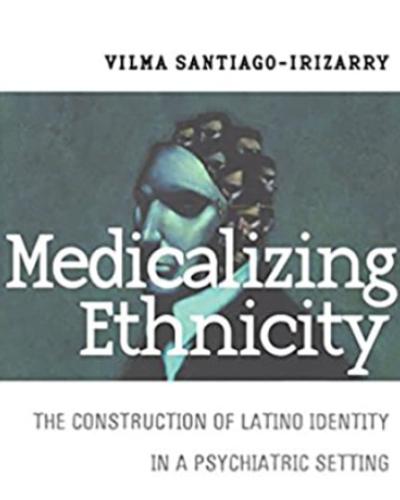 Department Homepage
The College of Arts & Sciences
Department Homepage
The College of Arts & Sciences

Medicalizing Ethnicity: The Construction of Latino Identity in a Psychiatric Setting
In Medicalizing Ethnicity, Vilma Santiago-Irizarry shows how commendable intentions can produce unintended consequences. Santiago-Irizarry conducted ethnographic fieldwork in three bilingual, bicultural psychiatric programs for Latino patients at public mental health facilities in New York City. The introduction of "cultural sensitivity" in mental health clinics, she concludes, led doctors to construct essentialized, composite versions of Latino ethnicity in their drive to treat mental illness with sensitivity.
The author demonstrates that stressing Latino differences when dealing with patients resulted not in empowerment, as intended, but in the reassertion of Anglo-American standards of behavior in the guise of psychiatric categories by which Latino culture was negatively defined. For instance, doctors routinely translated their patients' beliefs in the Latino religious traditions of espiritismo and Santería into psychiatric terms, thus treating these beliefs as pathologies.
Noorfarah Merali, University of Alberta. Journal of International Migration and Integration states that "The major strength of this book is the high level of critical analysis demonstrated by the application of an anthropological perspective to the field of mental health. . . . This book represents an important contribution to the conceptualization and incorporation of culture in the field of mental health."
Medicalizing Ethnicity: The Construction of Latino Identity in a Psychiatric Se…